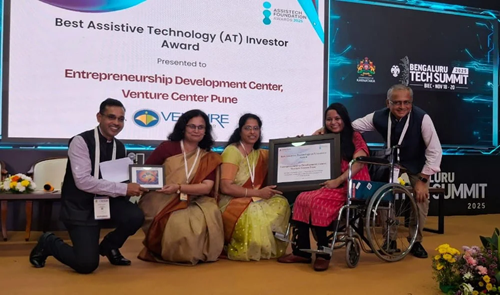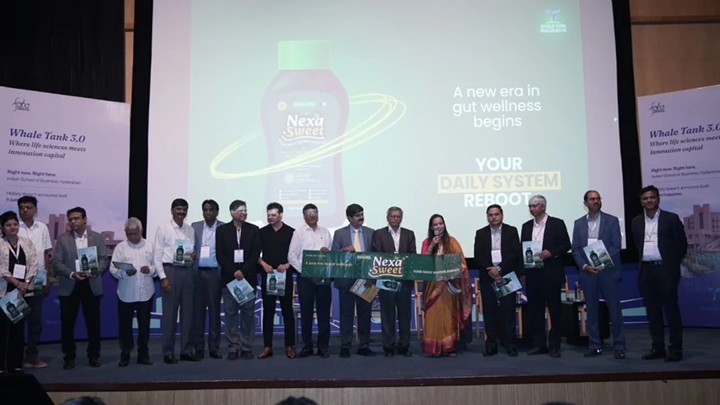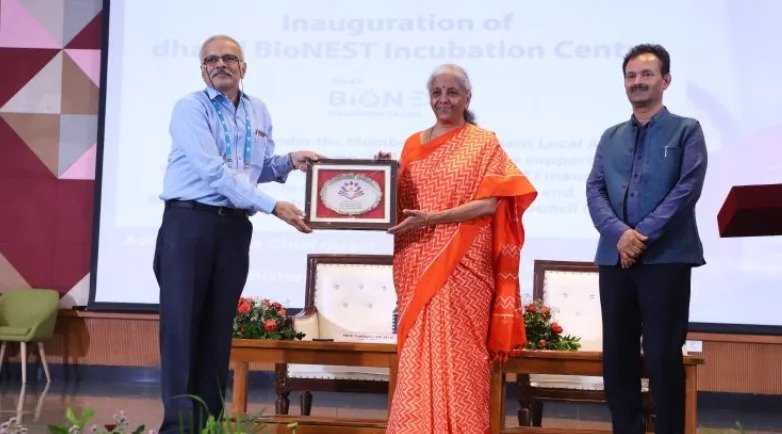Revolutionizing the Future: Cutting-edge gene editing innovations from pioneering startups
Gene therapy trails are also underway, exploring the use of gene editing for treating conditions such as sickle cell anemia and various types of cancer

Gene editing is a transformative technology that allows for precise modifications to an organism’s DNA, opening up new possibilities in medicine, agriculture and research. By targeting specific genes, scientists can potentially correct genetic disorders, enhance crop resilience, and develop novel therapies for various disease. The advantages of gene editing are substantial, it offers the potential to treat genetic disorders such as cystic fibrosis and muscular dystrophy, create crops that are more resistant to pests and environmental stress, and advance our understanding of gene function and disease mechanisms.
Recent developments in gene editing have been notable. CRISPR-Cas9, one of the most prominent advancements, enables highly accurate and efficient gene editing and is already being used in clinical trails to address genetic disorders and in research to explore complex diseases. Another significant innovation is Prime Editing, which offers more precise modifications with fewer off-target effects compared to traditional CRISPR methods. Gene therapy trails are also underway, exploring the use of gene editing for treating conditions such as sickle cell anemia and various types of cancer.
Companies are heavily investing in gene editing due to its vast therapeutic potential, which could lead to groundbreaking treatments for previously incurable conditions. The technology opens up new markers in healthcare and agriculture, presenting opportunities for innovation and growth. Additionally, as gene editing technology advances, companies are keen to stay at the cutting edge of scientific progress and leverage its commercial applications, making it a central focus of research and investment.
CRISPR Therapeutics
CRISPR Therapeutics has developed a proprietary lipid nanoparticle (LNP) platform for delivering CRISPR/Cas9 to the liver. The first two programs, CTX310™ and CTX320™, target cardiovascular disease and are currently in clinical trials. The addition of two more programs, CTX340 and CTX450, highlights the platform's modularity and scalability.
Editas Medicine
Editas Medicine has presented preclinical data showcasing advancements in their in vivo gene editing technologies. Highlights include the development of an optimized lipid nanoparticle (LNP) delivery system for the AsCas12a nuclease, effective in transfecting the ocular trabecular meshwork, and guide RNA modifications enhancing gene editing efficiency. The data demonstrate significant progress towards therapeutic applications, particularly for myocilin-associated primary open angle glaucoma, with successful reductions in intraocular pressure in preclinical models.
Verve Therapeutics
Verve Therapeutics' VERVE-101 is an in vivo base editing medicine administered as a one-time intravenous infusion designed to inactivate the PCSK9 gene in liver cells. This action stops the liver from producing the PCSK9 protein, leading to a sustained reduction in low-density lipoprotein cholesterol (LDL-C). VERVE-101 is initially aimed at treating heterozygous familial hypercholesterolemia (HeFH), an inherited condition that causes lifelong high LDL-C levels and accelerates atherosclerotic cardiovascular disease (ASCVD).
The Heart-1 Phase 1b clinical trial is currently evaluating VERVE-101, focusing on its safety, tolerability, and its impact on blood PCSK9 protein and LDL-C levels.
Genentech and GenEdit
Genentech has partnered with GenEdit to use its NanoGalaxy non-viral delivery platform for gene therapies targeting autoimmune diseases. The deal includes an upfront payment of $15 million and up to $629 million in potential milestone payments. This collaboration aims to develop polymer nanoparticles for targeted delivery of nucleic acid-based medicines, offering a safer and more flexible alternative to viral vectors. GenEdit's technology promises enhanced tissue selectivity and lower immunogenicity.
Beam Therapeutics
Beam Therapeutics has dosed the first patient in a Phase 1/2 clinical trial for BEAM-302, an in vivo base editing treatment targeting alpha-1 antitrypsin deficiency (AATD). This investigational therapy aims to correct the genetic mutation responsible for AATD, addressing both lung and liver complications associated with the disease. The trial will evaluate the safety, pharmacodynamics, pharmacokinetics, and efficacy of BEAM-302, with the goal of developing a one-time, durable treatment for AATD patients.
Sangamo Therapeutics and Pfizer
Sangamo Therapeutics reported that Pfizer announced positive results from its Phase 3 clinical trial of giroctocogene fitelparvovec, a gene therapy for hemophilia A, co-developed with Sangamo. The trial demonstrated substantial efficacy in reducing bleeding events and the need for factor VIII infusions in patients. This advancement represents a significant milestone in gene therapy for hemophilia A, highlighting the potential for long-term treatment solutions.
Gene editing, particularly with advancements like CRISPR-Cas9, has emerged as a transformative technology with far-reaching implications across medicine, agriculture, and research. The precision and efficiency of gene editing tools have opened up new possibilities for correcting genetic disorders, enhancing crop resilience, and developing novel therapies for various diseases.
Recent innovations highlight the rapid progress in this field. CRISPR Therapeutics is leveraging lipid nanoparticle platforms for cardiovascular disease treatments, while Editas Medicine is advancing in vivo gene editing technologies targeting ocular conditions. Collaborative efforts, such as those between Genentech and GenEdit, aim to improve gene therapy delivery systems, enhancing tissue selectivity and reducing immunogenicity.
As companies continue to invest in and refine these technologies, the future of gene editing looks promising, with the potential to revolutionize healthcare and agriculture, offering innovative solutions and driving scientific progress.
Published on : 31st July, 2024
BIO-TECH
-
IHH Healthcare and Fortis launch ‘IHH Catalyst’ to strengthen India’s healthcare innovation ecosystem 11th February, 2026

-
Venture Center receives ATF 2025 Honour for supporting assistive technology innovations 24th November, 2025

-
Vaidam Health and Vanuatu's Ministry of Health ink MoU to strengthen cross-border healthcare access 20th November, 2025

-
Whale Tank Biocatalysts hosts Startup-Investor Meet WT 3.0 in Hyderabad 17th November, 2025

-
BTS 2025 to host India’s largest entrepreneurship platform “Future Makers Conclave” on Nov 20 06th November, 2025

-
Bessemer Venture Partners leads Rs 125 Cr Series A funding in fertility startup Pluro 04th November, 2025

-
dhaRti BioNEST Incubation Centre opens at Indian Institute of Technology (IIT) Dharwad 15th October, 2025





